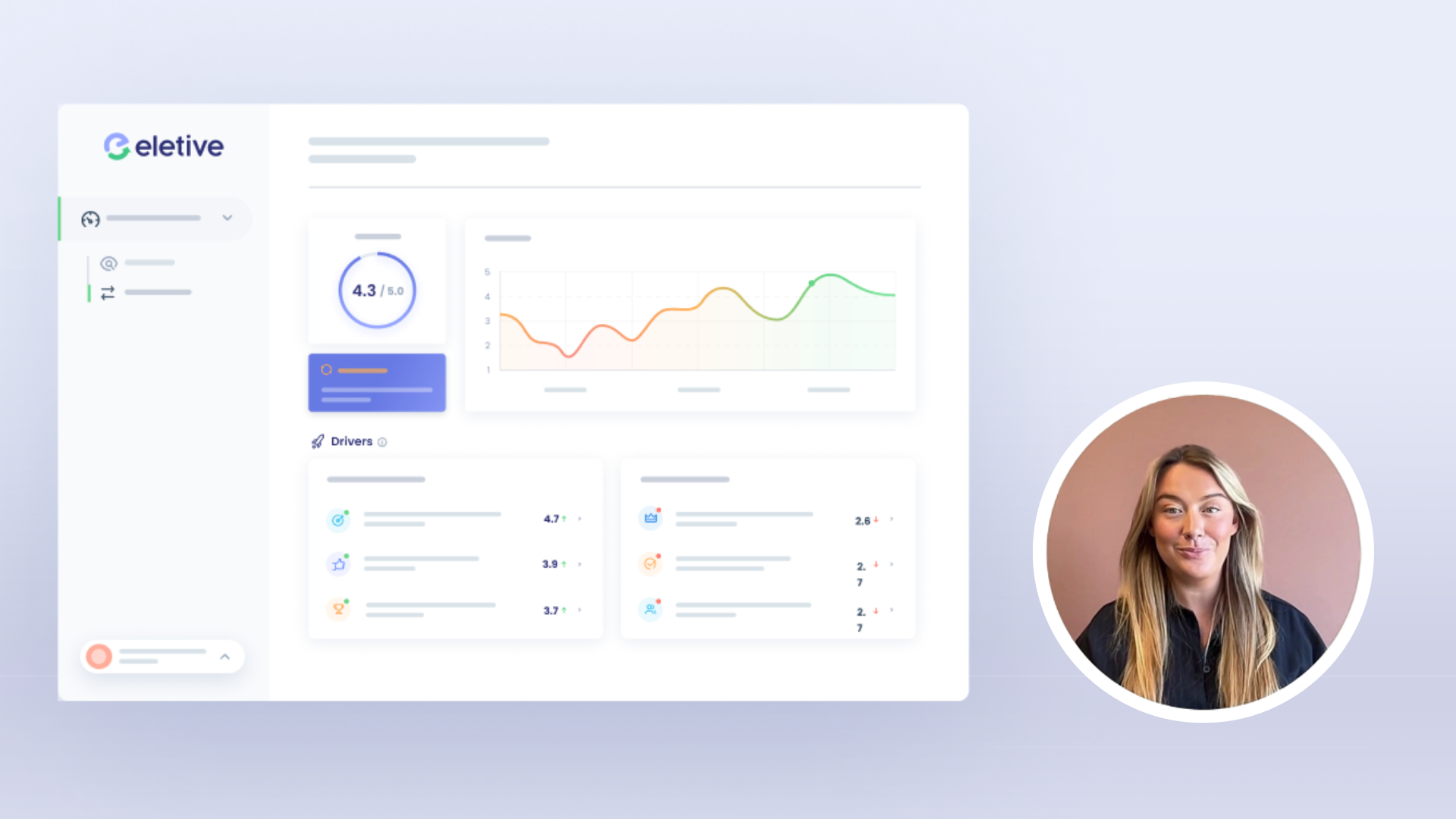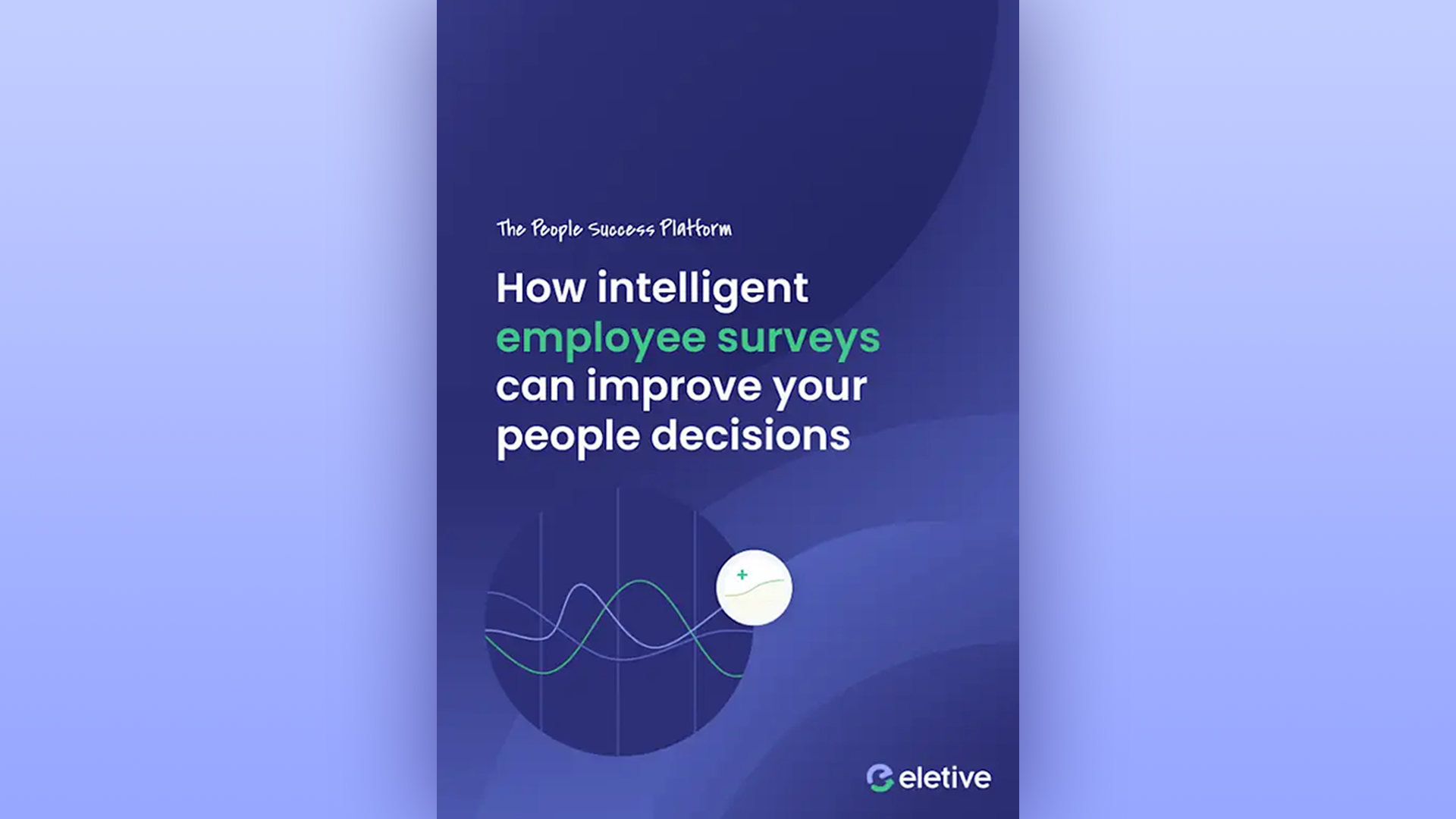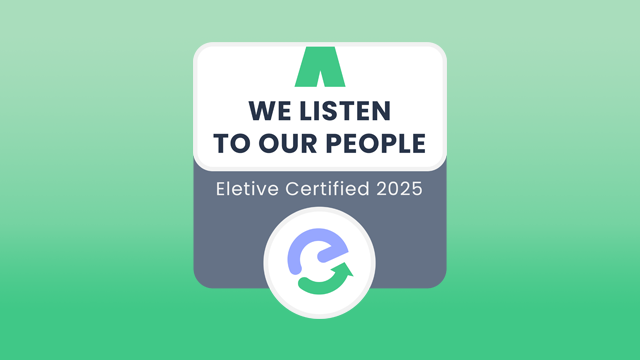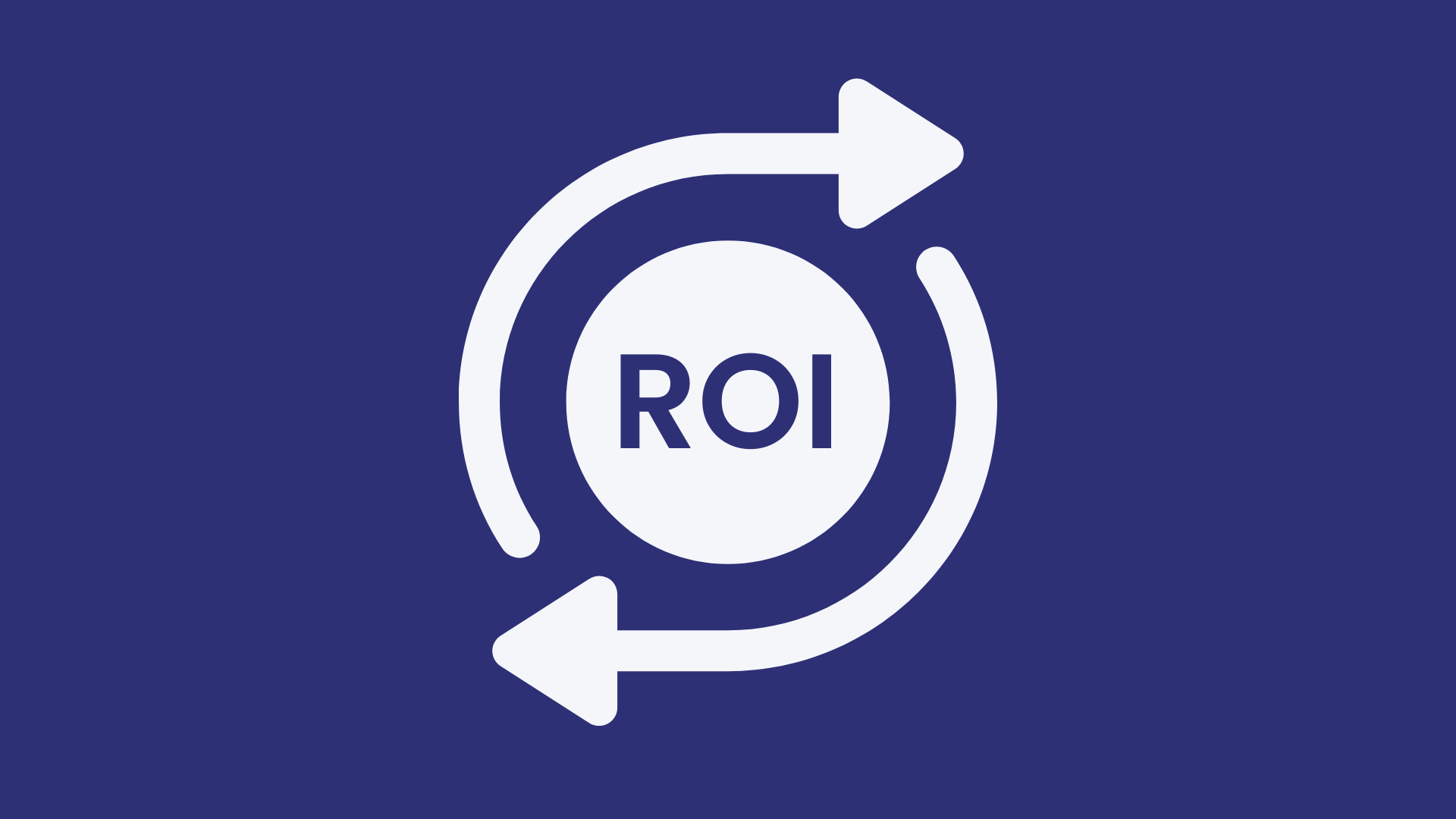Constructive feedback unlocks growth, both on an individual and organisational level. A structured feedback process including 360 appraisals provides valuable insights and can help you identify potential areas for development.
360 appraisal surveys are growing increasingly popular within Human Resources and people teams, and for good reason!
Integrating multi-rater feedback in your performance development strategy can be a game-changer, and can help improve both employee performance and the employee experience as a whole.
What is 360 degree appraisal?
A 360 degree appraisal, also known as multi-rater feedback, is a comprehensive evaluation system that assesses an employee's performance from multiple perspectives.
This method goes beyond the traditional manager-to-subordinate review to include feedback from peers, subordinates and even external stakeholders such as customers or suppliers.
Eletive-employee-development-with-360-feedback:format(jpeg)/f/288714721386412/8b9b39f859/360_appraisal.jpg)
The primary goal of this approach is to provide a holistic view of an individual's:
Competencies
Skills
Behaviours in the workplace
Benefits of 360 appraisal surveys
The process that makes 360-degree coaching a game-changer in the HR realm is its comprehensive nature.
A sample 360-degree feedback report provides an all-encompassing view, enabling you to recognize previously overlooked strengths and areas for personal development within your team.
The advantages of 360 degree appraisal, a bird's eye view:
A higher level of self-awareness
Focus on the “How” as well as the "What"
Improved communication
Improved workplace relationships
Increased accountability and transparency
Personal and professional development
Improved team performance
Improved individual performance
Improved leadership skills
Increases self-leadership
Let’s dig a little deeper into some of the main advantages…
Inclusive feedback process
Unlike traditional appraisal methods where manager scores dominate, this approach invites input from various sources.
This can include peers, subordinates or even customers - anyone who interacts with the employee regularly.
Promoting employee engagement
An inclusive evaluation like this significantly contributes towards increased employee engagement by fostering open communication channels between employees and management.
Fostering personal development & professional growth
Your staff members are likely to show interest in their performance when they know it's based on legitimate judgement from multiple perspectives rather than just one source.
Slightly lower scores in certain competencies may motivate them to improve those areas while multiple high scores will boost morale and job satisfaction.
Last but not least, such appraisals demonstrate company values of transparency and fairness which further encourages loyalty among employees.
How to implement 360 degree appraisal
The implementation of a 360-degree appraisal is not as daunting as it may initially seem.
Here’s a step by step breakdown…
Step 1 - Identify stakeholders
To begin, you need to identify the stakeholders involved in this process; these typically include managers, peers, subordinates and sometimes even customers.
All individuals who have worked closely with the person being evaluated can contribute their insights.
This makes it more balanced than conventional appraisals where only managers score employees' performances.
Step 2 - Define evaluation criteria
A crucial step involves defining the criteria for evaluation that aligns with your company values.
This could range from results orientation to personal development or any other relevant attributes specific to your organisation's culture and ethos.
Step 3 - Create survey or questionnaire
You then create a survey or questionnaire using self-administered online assessment programs designed specifically for such appraisals.
The questions typically focus on areas like results orientation, personal development and how well they demonstrate company values amongst others.
💡Top tip: Incorporate questions that allow respondents to score high on aspects they believe are strengths while also showing interest in areas needing improvement.
Related reading: How to implement 360-degree feedback | Eletive
Step 4 - Foster personal development and growth through coaching sessions:
360-degree coaching sessions are an essential post-assessment phase. Executives undergo 360-degree coaching and receive personalised guidance based upon collected data.
If any specific area requires further attention then follow-up 360 surveys may be conducted after implementing recommended changes ensuring continuous growth journey for all involved parties.
A well-implemented post-assessment follow-up includes detailed analysis using self-administered online assessment programs followed up by subsequent surveys
Organisations' executives receive insights into how their actions align with organisational objectives - promoting results orientation at every level.
Challenges of 360 degree appraisal
Several challenges that may arise during 360 appraisal execution.
Potential bias in feedback
A major hurdle faced by HR managers lies in ensuring legitimate judgement throughout the feedback process.
In some cases, personal benefits or grudges might influence how colleagues rate each other leading to slightly lower scores for certain individuals.
Time-consuming process
Gathering and analysing data from multiple sources can be time-consuming which could lead executives undergoing 360-degree coaching to receiving seriously delayed results.
Honesty in peer review
That employees often find it difficult providing honest feedback about their peers' performance fearing backlash or damaging relationships.
Why do you need a 360 appraisal tool or software?
To combat these challenges, organisations are increasingly turning towards self-administered online assessment programs like Eletive.
Our platform not only ensures anonymity but also provides a structured format for collecting responses making them ideal tools for post-assessment follow-ups.
Moreover, it helps streamline communication between different departments, reducing chances of bias while increasing employee engagement.
With Eletive you have a holistic platform that not only runs the 360 appraisal surveys, but also allows you to connect the results to 1:1s, action plans, performance management, and impact analytics.
Giving you the power to truly transform your organisation!
Having the right tools in place will allow for a proactive approach to the 360 appraisal results, so you can turn the insights into meaningful action.
Remember though - implementing such systems requires careful planning and consistent effort on part of both management staff alike.
Despite potential hurdles however, remember the ultimate goal here isn't just to score high marks for commercial purposes.
But rather, to encourage continuous professional development among team members helping them recognize previously overlooked strengths thereby fostering increased commitment to job roles.
If you don’t have a platform like Eletive and prefer to run the survey’s manually, then you’ll find some best practices below…
Eletive-360-feedback-feature:format(png)/f/288714721386412/f76715ba82/360_feedback.png)
Best practices for 360 degree appraisal
In the world of human resources, implementing a successful 360-degree appraisal system can be challenging.
To ensure the successful implementation of a 360-degree appraisal system, certain procedures should be followed to guarantee its effectiveness and advantages for all concerned.
Anonymity and confidentiality
The first step in conducting an efficient 360-degree coaching internally involves ensuring anonymity.
This encourages honest feedback from peers without fear of retaliation or judgement.
Clear instructions on evaluation criteria
The next crucial aspect is providing clear instructions about evaluation criteria.
Demonstrate company values: Employees who exemplify your organisation's core principles score high in these appraisals.
Show interest towards personal development: Those showing interest in professional growth often receive multiple high scores.
A results orientation mindset: Staff with a focus on achieving goals usually have higher manager scores.
Data collection & analysis methods
You must also decide how data will be collected - self-administered online assessment programs provide convenience while maintaining privacy standards.
Methods such as comparing slightly lower scores against areas where employees scored exceptionally well help recognize previously overlooked strengths.
Frequent Follow-ups & Feedback Process Improvement Strategies:
To keep employee engagement levels up, consider running regular follow-up 360 surveys post initial assessments.
This allows HR managers to track progress over time and adjust strategies based on evolving needs.
Remember that each organisation has unique requirements; therefore it's essential to tailor the implementation strategy accordingly.
The goal remains consistent though - increased employee engagement through constructive feedback leading ultimately towards overall organisational success.
360 appraisal example questions
What questions should a 360 feedback form include? Best practice is to include both so-called closed questions, where participants rate different statements with numbers on a scale, and open-ended questions, to bring in more qualitative responses.
We’ve written extensively about 360 appraisal example questions in this blog post: Examples of 360 degree feedback questions
Conclusion
So, we've journeyed through the dense forest of 360 degree appraisal.
A comprehensive evaluation tool that gives you feedback from all angles - superiors, peers and subordinates alike.
We've discovered its myriad benefits; a holistic view of performance, open communication channels and multiple perspectives to consider.
Navigated the implementation process; identifying stakeholders, defining criteria for evaluation and analysing results.
Faced up to challenges such as potential bias in feedback or difficulties in obtaining honest responses.
And finally, we’ve looked at best practices like ensuring anonymity and confidentiality when conducting these appraisals.
The road may be winding but with Eletive’s tools designed specifically to measure employee engagement and increase performance levels - it becomes a lot less daunting!
:format(png)/f/288714721386412/8bc74e1c86/ewebinar__1_.png)
Increase engagement with Eletive
Eletive, is here to guide you on this journey towards creating an engaged workforce that drives your business forward. Start exploring today! You won't regret it.



























:format(jpeg)/f/288714721386412/8ecac3d143/blog-what-is-360-appraisal-and-how-can-it-improve-performance-hero_media.jpg)
:format(jpeg)/f/288714721386412/1280x720/02da360edc/performyard-alternatives.jpg)
:format(jpeg)/f/288714721386412/1280x720/154d0efc4c/tinypulse-alternatives-hero.jpg)
:format(jpeg)/f/288714721386412/1280x720/940c479a26/delighted-alternatives.jpg)